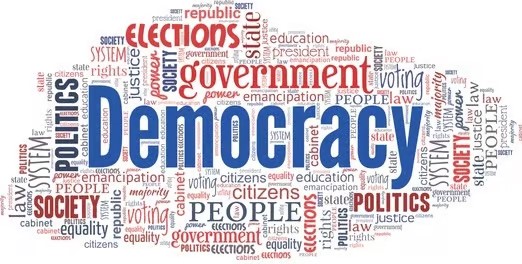For a healthy democracy, other ingredients namely constructive opposition and free debate both in Parliament and in the media are prerequisites

Has India slipped into electoral democracy as western critics aver? Electoral democracy has but the basic accoutrement of a democracy — periodic elections. But for a healthy democracy, other ingredients namely constructive opposition and free debate both in Parliament and in the media are prerequisites.
Inside the Parliament and State assemblies we need presiding officers who are fair and neutral. As it is, the ruling party or dispensation installs its own nominee as the speaker who is often seen to be openly partisan in kowtowing to the wishes of his appointers and deliberately riding roughshod over opposition interests.
The Constitution makers ought to have foreseen this grim possibility but they left it to the wisdom of the house to elect one among themselves as the speaker both of the Lok Sabha and assemblies thus paving the way for the majority ruling dispensation to install a pliable person for this onerous responsibility who in the wake of the increasing tendency to poach from other parties has to, in addition to conducting debates, also rule on whether members switching sides midstream attract disqualification or not.
With the anti-defection law lending itself to several plausible interpretations, the wily speaker is often seen smugly bailing out the treasury with a fig leaf of justification.
Likewise, whether a debate must be allowed or not, its length and who speaks for what duration are all at the tender mercies of the presiding officer. Hasn’t the time come for roots and branches reforms in this seminal branch of Parliamentary democracy?
The NDA government has fired on all four cylinders to rustle up support for its one-nation-one-election initiative despite it being riddled with deep flaws, but curiously hasn’t bestirred itself to initiate reforms on the speaker’s office. More curiously, the Opposition too hasn’t cared to mobilise public opinion on this admittedly neglected aspect of our Parliamentary democracy.
Why not install the seniormost retired chief justice of India to the august office of the speaker of the Lok Sabha? If he or she is unwilling, so be it. Next in the seniority list should be approached. Such a speaker, like the CAG, will have continuity if he is appointed for say 5 years spanning two or more Lok Sabhas should there be mid-term or regular elections during these five years.
Such a speaker without party affiliation can be counted upon to conduct the proceedings fairly and evenhandedly. Likewise, the seniormost retired chief justice of a high court must adorn the chair of the speaker of the state assembly.
Many Western democracies have abandoned the first past the post (FPTP) system in favour of some form of proportional representation system. Under the FPTP model in vogue since independence, from Pandit Nehru to Narendra Modi have ruled the nation with 33% to 37% votes in favor of their parties. How this happens is easy to explain.
Let us say there are 5 candidates in the fray in a constituency with A hogging 23% of votes and the others namely B, C, D and E getting 21%, 20%, 19% and 17% respectively. A would be declared the winner, and should be replicated in all the 543 constituencies of the Lok Sabha, a party with 23% mandate can get to rule the nation. In the crudest form of proportional representation, A’s party would get 23% of the Lok Sabha seats, B’s 21% of the seats, C’s 20%, D’s 19% and E’s 17% which would reflect the will of the people more fully and wholesomely on a pan India basis as opposed to the extant practice of being fixated on individual constituencies. Of course, this is the most rudimentary variant of the proportional representation.
More complicated but fair variants like single transferable vote are in vogue that requires a voter to cast his preferences in the pecking order in favour of candidates in fray instead of punching one single button that elbows out all other candidates out of reckoning. India, the US and the UK remain wedded to FPTP.
The UK conducted a referendum about five years ago on this seminal issue and chose to persist with FPTP warts and all. Proportional representation besides being more equitable gives representation to regional parties better.
Why don’t our political parties even talk about this facet of our Parliamentary democracy? Perhaps because they don’t want to rock their own boats? Who knows tomorrow it may be their turn to rule with say a 35% mandate under the FPTP system. Be that as it may.
The third reform warranted is the end to the farce of one contesting from two seats. Under the Representation of People’s Act (RPA), one can contest from two or more seats but within 14 days of the results must resign except from one if he has won from more than one seat.
What is there to stop a too-important-a-candidate-to-fail from contesting from three seats? More importantly what happens if as many as 50 persons choose to plump for this safety mechanism? Why should such diffident candidates be indulged?
More appropriately, why should the electorate of constituencies whose seats the winner has abdicated be left fuming and seething and subjected to another round of election so soon in the day? Enough is enough. Our political parties should show unanimity in striking against this farce. It doesn’t require a constitutional amendment but only an amendment to the RPA.
--FPJ